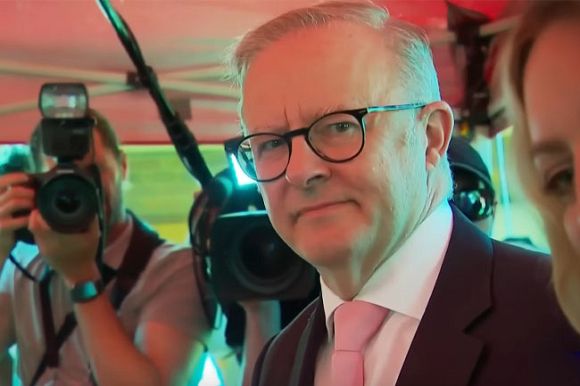A growing chorus is calling for Australia’s republic conversation to focus less on symbolism and more on empowering local communities through real structural reform, writes Kaijin Solo.
ON THE BACK of a landslide win for the Labor Party and the resultant end of the Coalition, the time to start talking about the republic is finally a reality.
Readers may recall the Prime Minister’s statement to the newly crowned King of the Commonwealth that we wouldn’t be talking about the republic in his first term.
That term is now behind us and the Treasurer has managed to make a full house out of a backyard straight, so the budget is not as much of a headline item as it has been.
The obvious question is, of course, what difference would Australia becoming a republic make for the average Australian?
Depending on how we go about it, there are some real benefits for the people themselves.
First on the list is to put local government in the Federal Constitution, something that has been overlooked for the whole length of the Federation, to the point where the current structure can be neatly described as “Late Victorian Westphalia”. I say that because local government was under the structure of the state governors until Federation. There had been little change in the structure itself for all of the upheavals of the colonies during the colonial era and those colonies were federated as they we were in 1901.
Many at this point will ask why have states at all. I am not really talking about the abolition of the states but more consolidation of the Federation in terms of where the people actually live, which is in a local government area which itself exists on a local country.
When local government is directly funded, the federal budget would be more fiscally efficient without having to go through the usual banausic razor gang scenario.
A major budget overhaul at the state and federal level is definitely overdue; there are items that aren’t funded properly and trying to ascertain how they are funded is an opaque segue to obfuscation.
The Education Department is a classic example, but definitely not the only one.
Any reputable CPA will tell you that the Government’s funding model is outdated. Merely converting a longhand bookkeeping method into software has exposed many flaws.
So, the budget being fiscally more efficient in its operation is the first benefit, but will this translate to a better outcome for the people?
How much of the work that goes on in a local area is done by people who live in that area, both government and private?
How much of the so-called “amalgamation of local governments” has benefited local areas and how much has just put the local government in the hands of external providers?
How much ecological destruction is done by companies from anywhere and everywhere, and how much do local governments have to pick up the tab?
That the structure is Westphalian is certainly witnessed by the Robin Hoods of environmental activism. One might wonder, is the Premier just the Sheriff of Nottingham and the Prime Minister Prince John?
That the current fiscal crisis (the cost of living) is the result of four decades of globalisation, where unchecked capital growth inflated our GDP, but local poverty was the result, is clearly seen when you stand back and look at the last 40 years.
For instance, global GDP has almost tripled since 2000, but the global population has only increased by one-third. So it doesn’t figure that there is poverty at all, let alone homeless people and working poor right here in Australia.
Whereas the global economy is a beast of its own choosing, that doesn’t mean we just have to put up with it.
By putting local government in the Constitution, we can give the people a constitutional voice right where they live. We could build a model where local country and local government work together on a local basis, rather than some carte blanche federal statement where the rubber never meets the road, with the exception of some Eureka moment in a predetermined government press gallery.
I have found on examination that the Federation, like the majority of nations in the global economy, is way too top-heavy to be a functional republic. However, I think we could start to reverse the trend by putting local government in the Constitution, allowing the people to vote for the mayor and having more say in what goes on in their local area than they currently do.
This could also streamline a clumsy state budget by clearly defining what is and what isn’t local, state or federal jurisdiction and, therefore, budget allotment and responsibility. Furthermore, a lot of local work could be subcontracted to local businesses and local people could help shape the development of local areas whilst sharing in the increased prosperity.
Hopefully, now that we have seen the implosion of the conservative Right and their lunatic fringes on the “beach towel that was once a tea towel” (the senate ballot paper), we might be able to recreate the Australian nation into something a bit more Australian in its actual nature.
Kaijin Solo is a general engineer by trade who holds a BA in Ancient Cultures and Creative Arts and Certificate IV in Training and Assessment. He was also a candidate in the 2001 Federal Election. You can follow Kaijin on Twitter/X @KaijinSolo.
 This work is licensed under a Creative Commons Attribution-NonCommercial-NoDerivs 3.0 Australia License
This work is licensed under a Creative Commons Attribution-NonCommercial-NoDerivs 3.0 Australia License
Support independent journalism Subscribe to IA.














